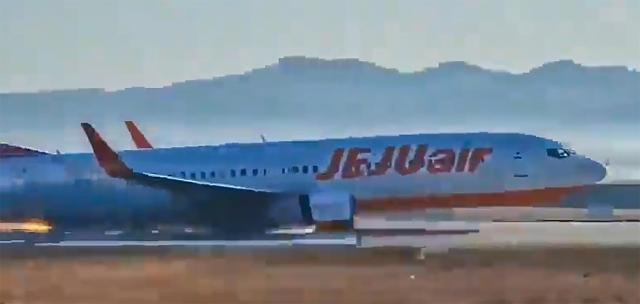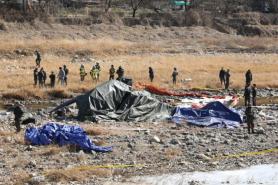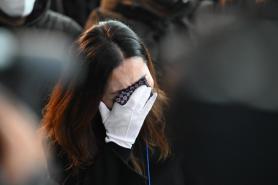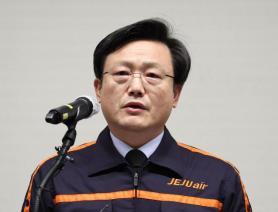
The ill-fated Jeju Air plane received the bird strike warning at 8:57 a.m., and the pilot declared a "mayday" emergency one minute later, according to Joo Jong-wan, director general of aviation policy at the Ministry of Land, Infrastructure and Transport.
The Boeing 737-800 then attempted to land on runway 19 at 9:00 a.m. Three minutes later, it made a belly landing without its landing gear deployed and crashed through a perimeter wall, officials said at a briefing in Sejong.
"After receiving the bird strike warning while approaching runway one, the pilot declared mayday," Joo said. "The control tower then authorized landing from the opposite direction, but the aircraft overran the runway and collided with the wall."
Officials said the flight data recorder has been recovered, and they plan to retrieve the cockpit voice recorder when site conditions permit. They dismissed suggestions that the airport's 2,800-meter runway length was a factor in the crash.
A surviving crew member also said a bird strike likely caused the accident.
"It appears to have been a bird strike. One engine started smoking and then exploded," the survivor told rescue workers, according to fire officials.
The aircraft was carrying 175 passengers — 173 South Koreans and two Thai nationals — along with six crew members from Bangkok. The National Fire Agency said that as of 3:18 p.m., 124 people were confirmed dead and two crew members were rescued from the tail section of the aircraft.
The survivors were treated at a hospital in Mokpo and transferred to Seoul later in the day, where they remain in stable condition.
Copyright ⓒ Aju Press All rights reserved.




